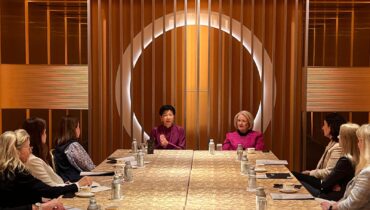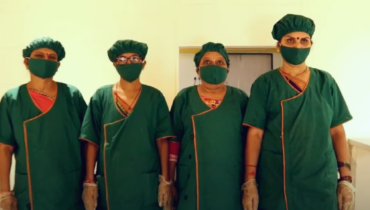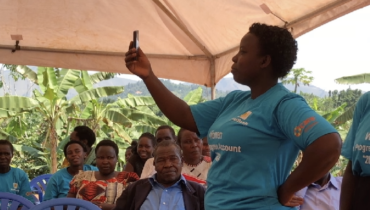By Jane Mosbacher Morris
Originally posted by TO THE MARKET in the HuffPost Impact Blog here.
ARZU means “hope” in Dari, one of Afghanistan’s official languages. For the female employees of ARZU Studio Hope, however, it means more than hope — it means opportunity. ARZU empowers Afghan women to “lift themselves and their families out of poverty through ethical, artisan-based employment, education, and access to healthcare.” Education is paramount: in a country where education opportunities for girls and women are almost non-existent in rural areas, 100 percent of ARZU weavers are literate. Outside the classroom, education continues with the goal of economic empowerment. A holistic cycle takes place: Women and girls learn to weave and knot rugs which then creates income for their families, education, and the facilities ARZU uses as schools, community gardens, and recreation centers.
We had the opportunity to interview one of these extraordinary artisans who has survived decades of war and conflict. Her name is Masuma. She was born in Dragon Valley, Bamiyan, but was forced to leave due to the Taliban occupation. Through working with ARZU, Masuma has been able to reclaim her life, her home, and her sense of self. Here are some the thoughts she shared with us:
TO THE MARKET: Tell us about your childhood.
Masuma: In the late 1990s, Taliban violence forced my family to flee to Kabul from Bamiyan when I was only three years old. With danger in Kabul mounting, my family moved once again, this time to a refugee camp in Pakistan. While there, my mother and grandmother weaved rugs, but even though they worked tirelessly, they could not earn enough money to even buy food for the family. In October 2005, we returned to Bamiyan and joined ARZU’s weaving program in 2007.
TO THE MARKET: Did you have the opportunity to seek an education?
Masuma: Due to the gap in my education while living as a refugee, I was behind my peers in Government School and was not able to attend. With help from ARZU, I was able was able to continue my education, eventually enrolling in Government School.
ARZU helped a lot. Through the fast track classes I was able to stay in school, and I recently enrolled in ARZUs English classes. With education I know I will have good opportunities in the future. That’s why I encourage my siblings to continue their education as well. I want them to become educated so that there are other ways for them to live and not be blinded in life.
TO THE MARKET: Tell us more about working.
Masuma: Last year, I started weaving Peace Cord bracelets for ARZU part-time. I feel very proud that I am able to contribute to my family and help my mother and grandmother with daily expenses and the education of my siblings. As a wage earner, I am a contributor, rather than burden to my family. When a person works and earns her own income, it automatically gives her a power in family. I have this power now
TO THE MARKET: So what inspires you?
Masuma: Education. Growing up as a refugee without a home or country, I never thought of the future. I thought of only the moment I was in because that is all that I knew. ARZU helped me to be literate and go to Government School. I know that if I continue my education I can have good opportunities in the future, and I always encourage my brothers and sister to continue their education. My view of life has changed now, and I have hope for the future and my country.
To learn more about ARZU Studio Hope and shop their Peace Cords, click here.
Want to help survivors like Masuma this Valentine’s Day? Follow TO THE MARKET on social media and share this story using the hashtag #AHeartforSurvivors!
TO THE MARKET | Survivor-made Goods is a social enterprise focused on the promotion of goods made by and stories told by survivors of conflict, abuse, and disease. You can follow TO THE MARKET onInstagram, Facebook, and Twitter @LetsgoTTM and on Pinterest,Google+, and Youtube @TOTHEMARKET.


